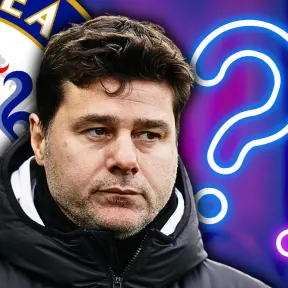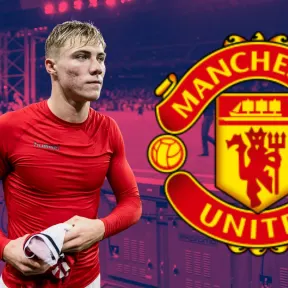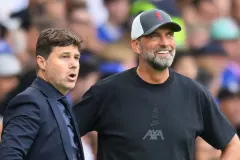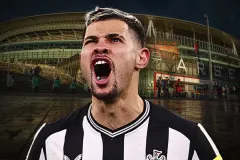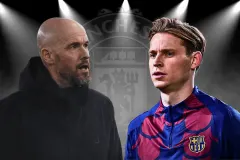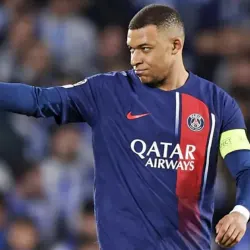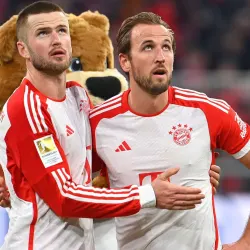Is Ruben Dias a Pep system player?

Ruben Dias secured the Premier League Player of the Year award in his debut season in English football but the Manchester City star is nowhere near as impactful on the international stage.
The 24-year-old and Portugal are now in danger of missing next year’s World Cup, after Aleksandar Mitrovic’s 90th minute goal gave Serbia a 2-1 win in Lisbon last night.
They will now face a playoff stage to qualify.
A number of Portugal’s Premier League stars struggle when donning the international shirt and boss Fernando Santos struggles to get the best out of them.
Having Cristiano Ronaldo in your team will give anyone a fighting chance but Dias feels like a perfect case in point: why does the player who was voted the best domestically in England last season, and who looks so imperious when deployed by Pep Guardiola look so distinctly average when playing for Portugal?
Well, there are a number of factors that could be at play here.
Difference in tactical approaches
The key to good to being a good manager tactically is that it is about giving your team the best chance to succeed by providing a system and platform which focuses on getting the best out of the abilities of the players at your disposal.
In club football, this is undoubtedly easier as you can buy players to suit a system, whereas at international level you have to focus on moulding your system around the abilities and traits of the country’s best players.
Eyebrows were raised slightly when Guardiola paid £65 million to bring in Dias from Benfica, but the manager was vindicated when the defender went on to become the domestic player of the year.
Ruben Dias has transformed Manchester City this season 💪
The Football Writers' Association Footballer of the Year for the 2020/21 season 🏆 pic.twitter.com/goxvBXS7dw— Sky Sports News (@SkySportsNews) May 20, 2021
Pep plays with a high line that focuses on a defender's intelligence when it comes to neutralising attacks before they have already begun and their ability to help control a game by using the ball well. As a result of City’s ability to dominate even the very best teams, it means Dias gets the chance to show off all of the things he excels at: anticipation, distribution, speed, technique.
Portugal, under their Euro 2016-winning boss Fernando Santos, plays a much lower defensive line and are more focused on counter-attacking and hitting teams on the break. This forces Dias to defend more a lot more in his own box and puts a lot more responsibility on him in terms of the traditional defensive rudiments (heading, tackling, clearing the ball) which are not his strong suits.
He definitely excels more as a more modern and advanced defensive player, than being asked to be Hercules inside his own penalty area.
The respective quality of the head coaches
Ruben Dias began life as a striker, as he recently revealed in an interview with Man City club channels, and perhaps this is why he really is so intelligent when it comes to anticipating the movement from opposing attackers.
"I was a striker when I began, really I was a striker – scoring goals was all I did," said the defender, who has scored just once in 65 appearances for City.
He may not be a striker any more but he has excelled in the system and under the tutelage of Guardiola at City – whereas with Santos and Portugal the same is not true.
Santos seems to be of a tactical vintage which is now gradually being phased out the modern game, preferring a more direct style of football which hits teams on the break and in transition, rather than beating them with the quality of their attacking play.
Why would you choose to play that way with a 36-year-old Ronaldo leading the line, and the likes of the quality of Bruno Fernandes not really managing to find his way into the midfield of the starting XI?
The fact Santos led Portugal to their first major silverware has probably bought him more time than it ought to, and now it leaves them in danger of missing the biggest show of all in Qatar.
How good a ‘defender’ is Dias?
Back in what seems like the annals of a by-gone era now, defenders were judged on their abilities to lay their lives on the line defending their own goal.
Can you imagine Richard Dunne, the former City defender and Republic of Ireland international, playing in a Guardiola team?
Dias, on the other hand, excels as the archetypal modern defender, able to defend of course, but can also offer a whole lot more when his team has possession. Also key for Pep, is the fact he has the ability to quickly win possession back when his team loses it.
But force him into his own six-yard box and he may not have the heroic abilities of those from previous eras of football.
The Guardiola system allows him to reign supreme over the Premier League’s best, but he’s never really forced under the cosh or tested for an extensive period during games for City on the defensive side of the ball.
That leaves question marks over his abilities to really do the defensive rudiments over a sustained period of time, such as in a Portugal team which sets up camp near the edge of their own box for 90 minutes.
No doubt, Dias prefers playing on the front foot both defensively and when attacking, and playing under Pep at City allows him to do that.


